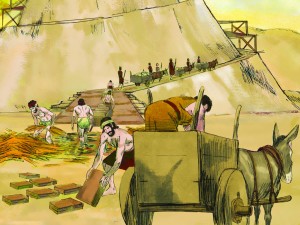The Sorcerer’s Apprentice (French: L’apprenti sorcier) is a symphonic poem by the French composer Paul Dukas, written in 1896–97. Subtitled “Scherzo after a ballad by Goethe,” the piece was based on Johann Wolfgang von Goethe’s 1797 poem of the same name. By far the most performed and recorded of Dukas’s works, its notable appearance in the Walt Disney 1940 animated film Fantasia has led to the piece becoming widely known to audiences outside the classical concert hall.
El aprendiz de brujo (francés : L’ apprenti sorcier ) es un poema sinfónico del compositor francés Paul Dukas , escrita en 1896-97 . Subtitulado ” Scherzo después de una balada de Goethe, ” la pieza se basa en el de Johann Wolfgang von Goethe 1797 poema del mismo nombre. Con mucho, el más tocado y grabado de las obras de Dukas , su aspecto notable en la película de animación de Walt Disney Fantasia 1940 ha llevado a convertirse en la pieza ampliamente conocido por el público fuera de la sala de conciertos clásica.
L’apprendista stregone (in francese : L’apprenti sorcier ) è un poema sinfonico del compositore francese Paul Dukas , scritto nel 1896-97 . Sottotitolato ” Scherzo dopo una ballata di Goethe , ” il pezzo si è basata su di Johann Wolfgang von Goethe 1797 poema omonimo . Di gran lunga il più eseguito e registrato opere di Dukas , la sua notevole apparizione nel Walt Disney 1940 film d’animazione Fantasia ha portato il pezzo diventare ampiamente noto al pubblico al di fuori della sala da concerto di musica classica .
Source: Genesis 11 Genesis 11 (espanol) Genesi 11 (Italiano)
Genesis 11
The Tower of Babel
1 Now the whole world had one language and a common speech. 2 As people moved eastward,[a] they found a plain in Shinar[b] and settled there.
3 They said to each other, “Come, let’s make bricks and bake them thoroughly.” They used brick instead of stone, and tar for mortar. 4 Then they said, “Come, let us build ourselves a city, with a tower that reaches to the heavens, so that we may make a name for ourselves; otherwise we will be scattered over the face of the whole earth.”
5 But the Lord came down to see the city and the tower the people were building. 6 The Lord said, “If as one people speaking the same language they have begun to do this, then nothing they plan to do will be impossible for them. 7 Come, let us go down and confuse their language so they will not understand each other.”
8 So the Lord scattered them from there over all the earth, and they stopped building the city. 9 That is why it was called Babel[c]—because there the Lord confused the language of the whole world. From there the Lord scattered them over the face of the whole earth.


Brad, I am really enjoying your pairing of the music with the readings. What a beautiful ear you have. Thank you for the experience. Doing these reading is making me want a a forum for discussion as they are raising many questions for me. That is a very good thing.
Good stuff Brad! Thank you.